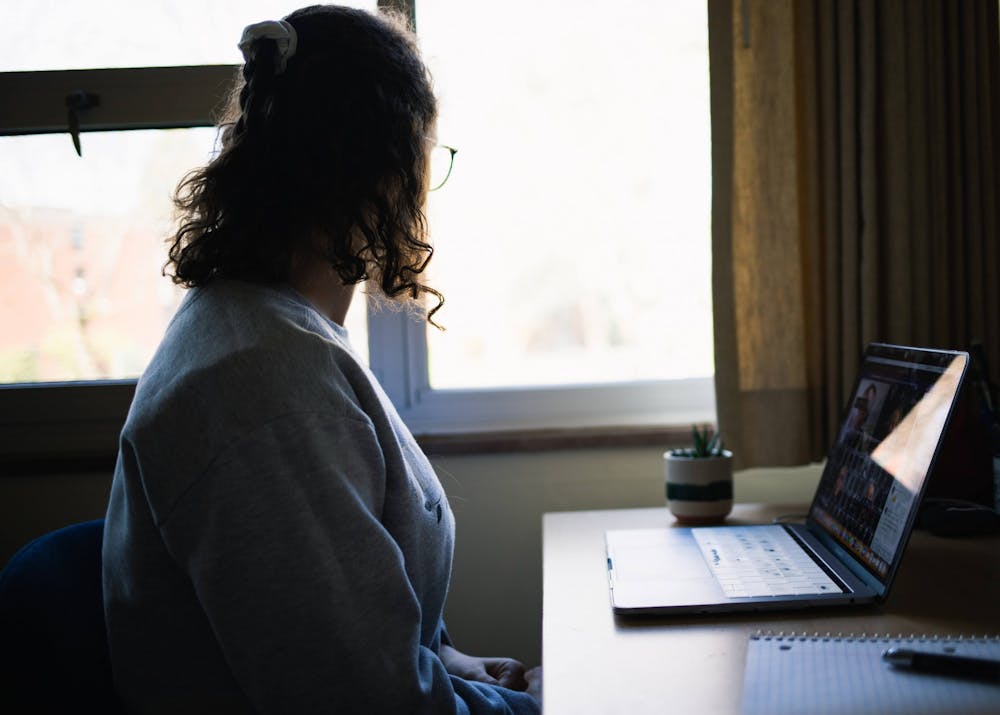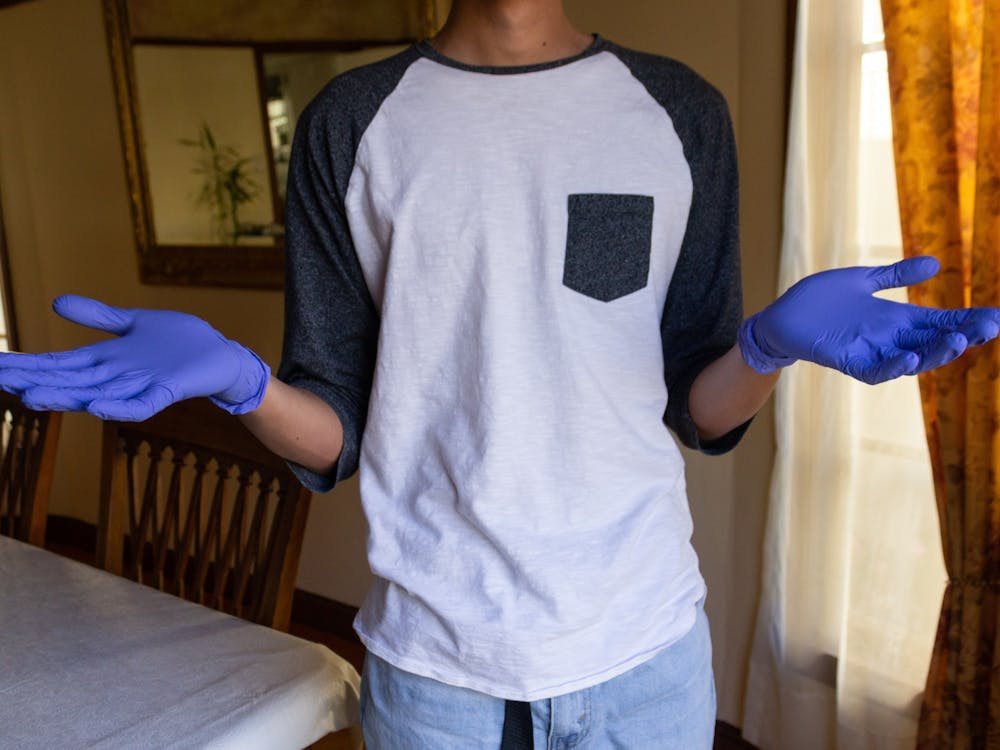Two weeks ago, you were surrounded by a hub of social activity. In either a dorm or a house, you lived with one or more of your closest friends. You walked past your peers every morning on your way to classes filled with 30 or more other students. Now suddenly, your only social interaction may be scrolling through your Instagram feed to see “until tomorrow,” “see 10 do 10” or “see a pup send a pup.”
At least 229 million Americans and 26 states are being urged to stay home and making the transition to social distancing and quarantine. As of Wednesday, one-third of the global population is on lockdown.
Although social distancing is our best bet at protecting physical health, the effects of isolation on mental health can’t be ignored. Isolation can be psychologically damaging, causing low moods and cognitive problems including processing information, decision making, memory storage and recall.
“That can make it really hard to just hop online and stay engaged with your courses when you're already in this panic mode,” said psychology professor Sarina Saturn. “It's kind of classically called fight or flight but I call it fight, flight, freeze or flop.”
Humans have an innate need to be social. According to Business Insider, the psychological effects of quarantines during disease outbreaks can lead to PTSD symptoms, depression, confusion, anger, fear and substance misuse. Being lonely seems to be as deadly as smoking 15 cigarettes a day. This is why quarantining and social distancing is proving to be very difficult.
Immune systems respond differently to fighting viruses, making people who are lonely are more susceptible to illness.
Renee Crowgey is a professor of psychology with years of experience as a community-based counselor. She warned that when nobody is within arms reach of you, your social circle is even more important.
“Research indicates that social isolation is one of the largest predictors of depression and suicide. I think that in these times, connection with others is imperative,” Crowgey said. “We are all scared and uncertain. We can isolate, or we can reach out to others. In the field of stress research, this is often called the ‘tend and befriend’ response to a stressor and we desperately need it now.”
Because of this, it is important to make a distinction between social distancing and relationship distancing. While practicing social distancing and actively trying to increase the physical space between yourself and others, there is an even greater need for close virtual contact with friends and family.
Families and friends around the world are meeting for virtual happy hours and are staying connected through technologies like FaceTime, Zoom, Microsoft Teams and even Netflix Party.
It is also important to keep physical activity up during this time of quarantine. This can include things like a walk, run, or bike ride (while practicing social distancing). Try to keep your mind stimulated in some way by watching a show that you haven’t binged four times before, or choosing a book over the endless scroll of Instagram.
While navigating your way through leaving UP and moving home, or transitioning to living in nearly empty dorms, and starting online classes, it is vital to take care of your mental and physical health.
To combat some of the negative effects of quarantining, UP has some resources available to you. Beauchamp is working on taking their fitness classes online. The Health and Counseling Center is offering counseling appointments over the phone, and the Active Minds club is hosting sessions for community building and social connection.
“There's no replacement for being in close proximity with people who care about us,” Saturn said. “Taking advantage of some of these newer technologies that make the gap a little smaller can help ward off some of the disastrous effects.”
Havi Stewart is a reporter for The Beacon. She can be reached at stewarth22@up.edu.








